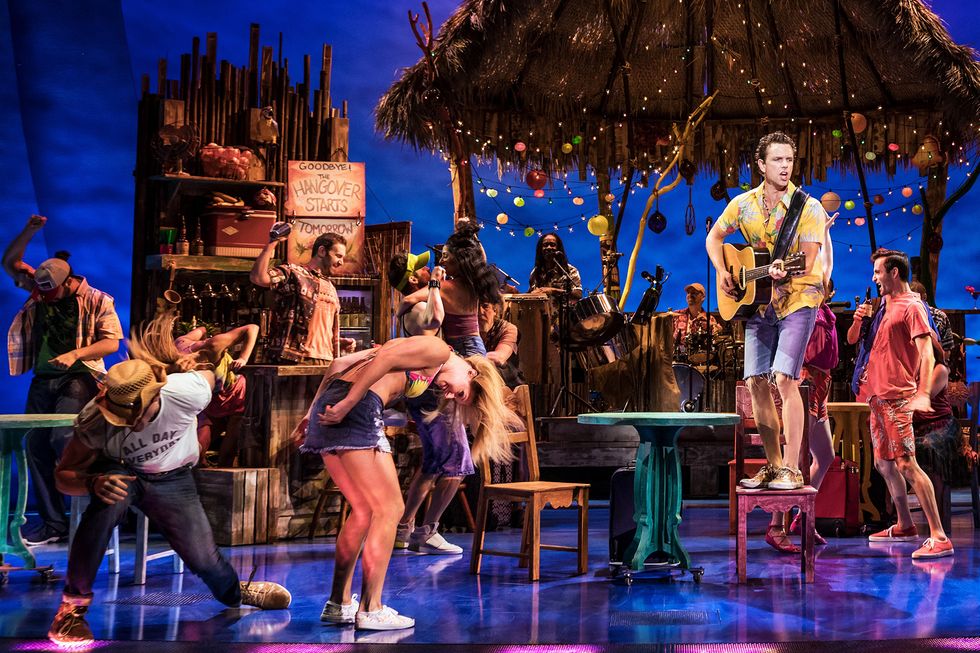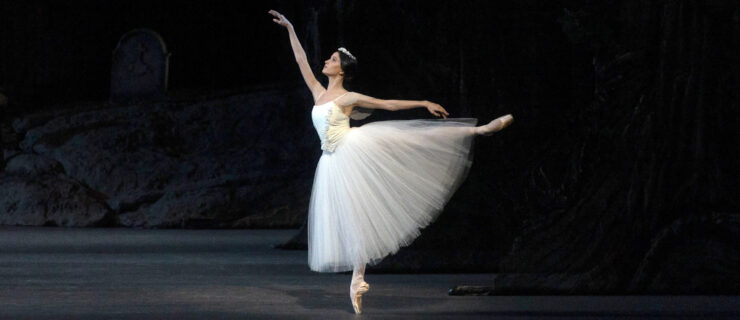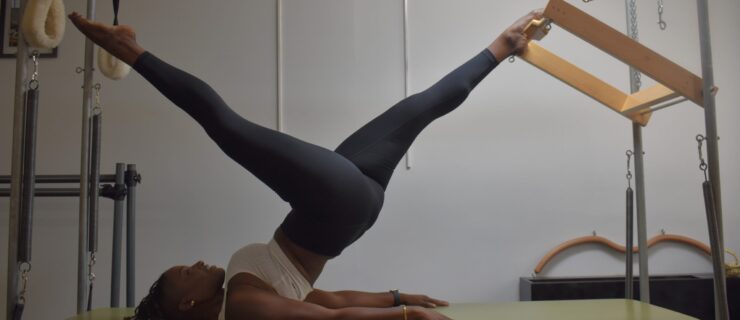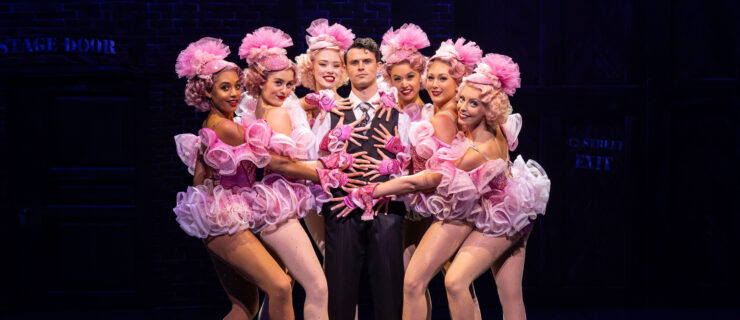How Broadway Choreographer Kelly Devine Switched Gears for Escape to Margaritaville
You could call it island-hopping, but it’s not exactly a vacation. After choreographing last season’s Come From Away, and winning a Tony nomination, Kelly Devine zipped from frosty Newfoundland to the Caribbean beach resort that is the setting for Escape to Margaritaville.
In the fall, she was shuttling between them, before they start this month: flying to Toronto to prepare a new Canadian production of Come From Away, then jetting back to Chicago for the final stop of Margaritaville‘s four-city pre-Broadway tryout.
“These two shows could not be more different from each other,” Devine says with a dash of understatement. Come From Away is about the small Newfoundland town where airliners grounded by the 9/11 attacks dumped thousands of unexpected visitors; Escape to Margaritaville, at the Marquis Theatre, is a comic island romance concocted from the beachcomber songbook of Jimmy Buffett.
And while the cast of Come From Away plays dozens of real people, not one of them a dancer, the 16-strong ensemble of Escape to Margaritaville is pretty much on a never-ending vacation, looking for a good drink and a good time (and, of course, a lost shaker of salt). So dancing is a major preoccupation.
Buffett’s dedicated fan base, known as Parrotheads, can rest assured that the 20-plus songs by their hero are not being manhandled. “Jimmy’s been our spirit guide,” Devine notes. “He’s also been very loose, and has given us free rein. What’s been tricky has been building dance breaks based on new characters we have.”
Margaritaville
‘s bouncy score includes new tunes as well as familiar hits. And she feels right at home with Buffett’s leisurely, loping beat. “My stepfather was a professional reggae guitarist,” she explains, remembering girlhood nights in California spent dancing at his gigs. “I can tap into that sound.”

PC Matthew Murphy, Courtesy DKC/O&M
The music, she says, “controls everything for me—what it makes me feel, what it makes my body do.” But musicals are about more than their sound, and she had to find her footing after Come From Away. “You get immersed in the work, and once you find that vocabulary, you just keep building—you just stay in that lane.”
For Margaritaville, she had to get off the highway, “to really switch gears.” It wasn’t just the new subject and score. What needed adjustment was her approach. “The tone of Come From Away was so important,” she says. “There was lots of restraint needed, to articulate very specific moments delicately.” With Margaritaville, delicacy is beside the point. “I had to remind myself that I can really go big and go wild with this show. If it’s too much, I can always pull back.”
Despite all the differences, she finds herself applying lessons from the earlier production. She says Come From Away taught her “how important every single gesture can be, and how to tell a story when you don’t have a lot of props or scenery. Knowing that, I approach all my work differently now. I think I have a sharper eye on every move, every step.”
Margaritaville
‘s story focuses on Tully, the Margaritaville Hotel’s laid-back, skirt-chasing entertainer; Brick, the bartender, and two vacationing gal-pals who find not just the cocktails but the men to their taste. The cast of characters, directed by Tony-winner Christopher Ashley, also includes a few oddballs, even zombies.
They’re part of the island’s folklore, the undead remnants of a group of Midwestern insurance salesmen who were visiting in 1962 when the volcano blew up. The zombies are in the trickiest of those tricky dance breaks, and at the show’s world premiere, in San Diego, critics reacted to them with both delight and scorn.
So Devine was still fiddling in Chicago. “I want to get it right,” she says. “I will be working on those guys until the day we open.” Pressed for details, she demurs: “You’re gonna have to see it—I can’t give it all away!”

PC Matthew Murphy, Courtesy DKC/O&M
She will say that they’re part of Brick’s flashback, that they’re dressed like ’60s businessmen—” ‘Mad Men’ zombies” who “do all sorts of stuff,” including a second-act tap number. “Brick realizes that the zombies are in his mind, so he can make them do whatever he wants. And he wants them to do a big tap number.”




